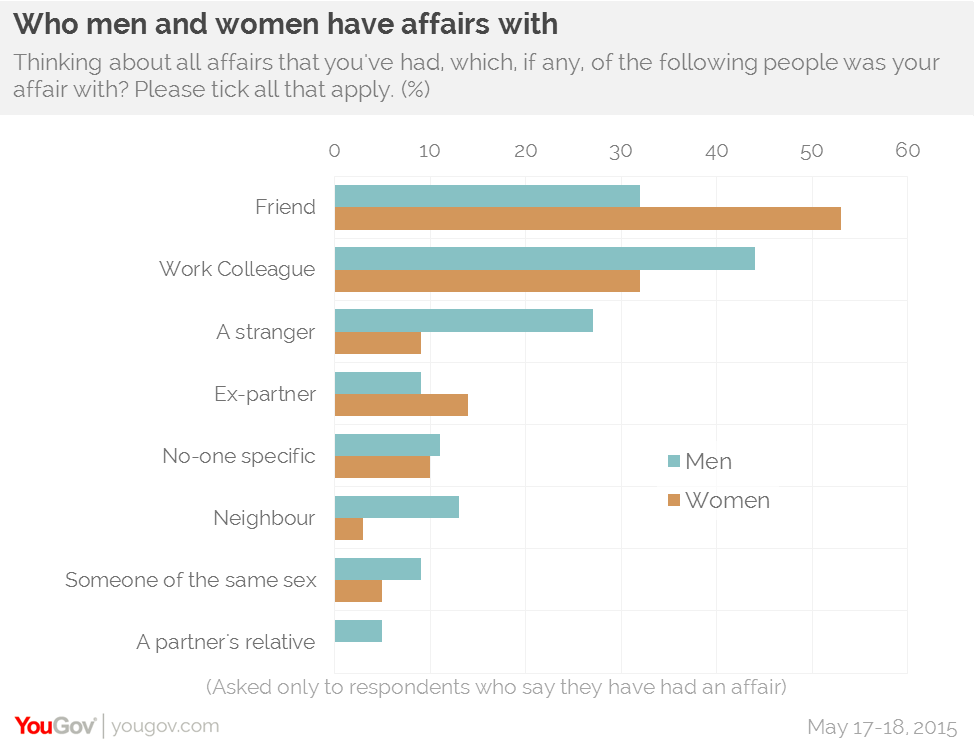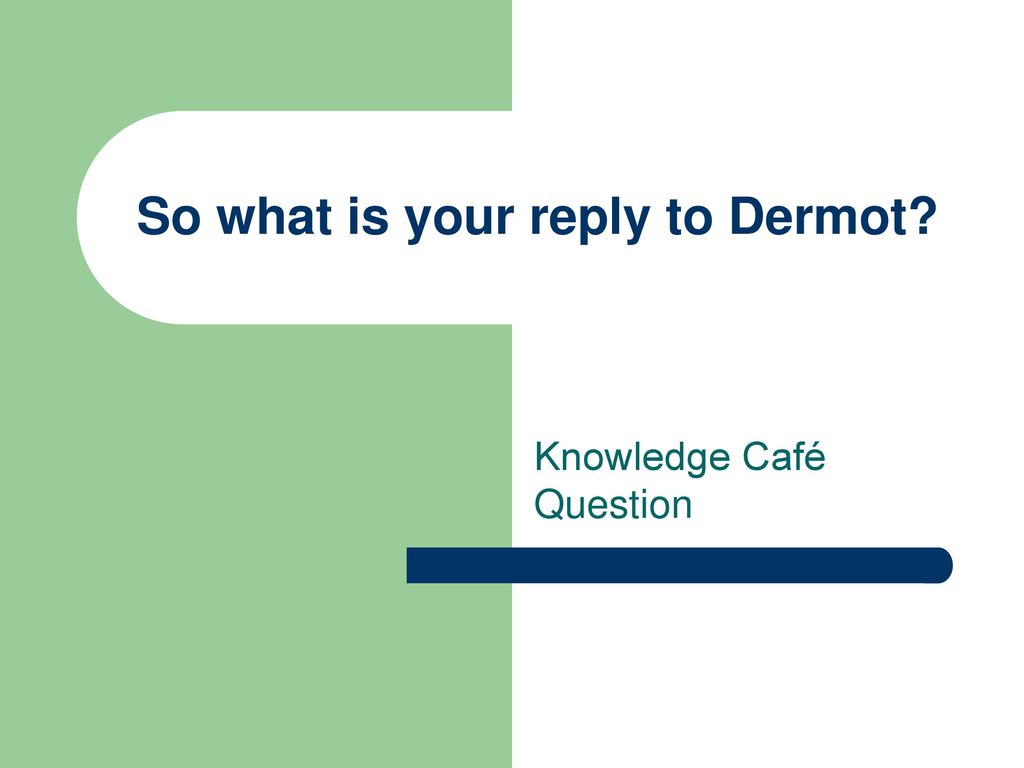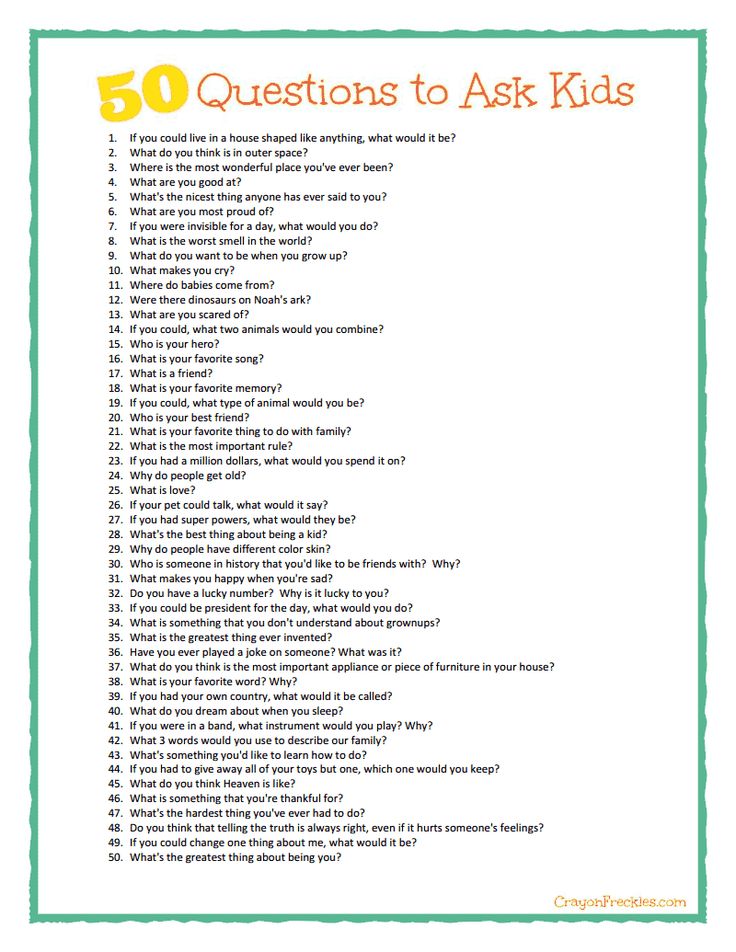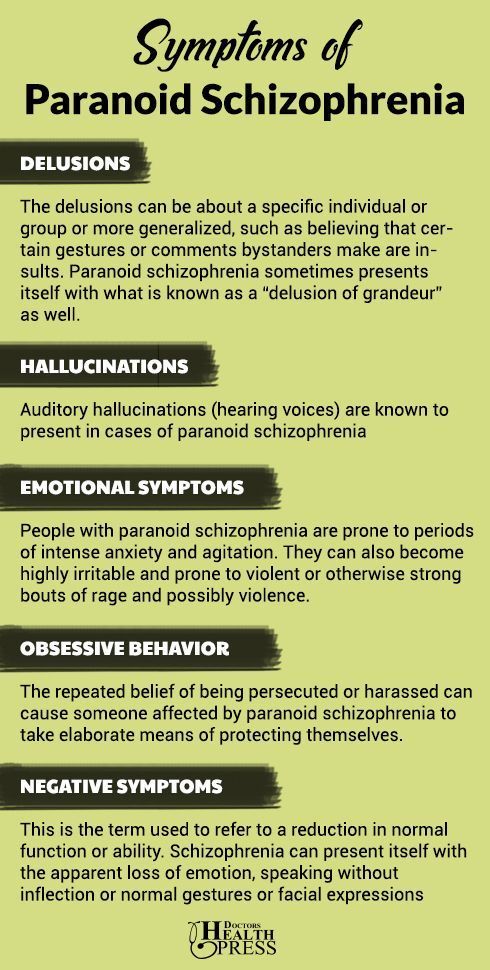When you discard a narcissist
15 Things That Happen When You Discard the Narcissist First
Share It!
37 shares
Narcissists are actually very textbook creatures. Once you educate yourself on their common behaviours, you can then arm yourself with the knowledge and foresight needed to extricate yourself from their web.
Ultimately, the narcissist does not want you to ever leave them (unless they choose to discard you). You have been such an excellent source of narcissistic supply for them, they can’t bear the thought of not having your energy on tap.
But your happiness and self-worth are paramount. For your own wellbeing, you may be ready to now leave the narcissist in your life. Be aware though, they are not going to like it one bit.
So let the narcissist stand there, spewing and tantruming to the world, while you walk away. Allow yourself a little smile, as you see them for who they truly are – an emotionally incapable child, stuck in an adult’s body.
RELATED POSTS:
◆ Blocking a Narc [13 Reactions] →
◆ Ignore a Narcissist [9 Outcomes] →
◆ Going No Contact [23 Reactions] →
◆ Narc Losing Control [10 Reactions] →
Page Contents
Things That Happen When You Discard the Narcissist First
They will try guilt you into staying
One of the most common things that will happen when you discard the narcissist first is that they’ll try and guilt you into staying.
They may use their trauma or financial situation to keep you there. They will literally use every little thing they’ve ever done for you to keep you trapped. After all, that’s what the love bombing phase is for – so that you can’t turn around and tell them that they’ve never done anything for you.
A narcissist doesn’t do anything for free. Everything is transactional and they will expect it all to be repaid at some point in the future – whether you realise it or not.
Common ‘guilt’ phrases narcissists may use:
“You know I can’t stand being alone.
”
“Go on, my Dad’s already left me, you might as well leave me too!”
“How can you leave the mother of your children?”
“After everything I’ve done for you!”
“I’m going to be homeless now, how can you do this to me?!”
“I’ve supported you through your studies and this is how you repay me?”
“How dare you!”
“I bought you that car/ paid for that holiday/ took you to expensive dinners and now you’re just going to walk away? You’re so selfish!”
“I’ve got nothing left to live for, I might as well just kill myself.”
At the end of the day, if someone’s guilting you into staying in a relationship that you don’t want to be in, it’s emotional blackmail.
RELATED POSTS:
◆ Examples of Narc Text Msgs →
◆ Narcissistic Fake Crying →
They’ll bargain with you
After the guilt tactic, the next thing that will likely happen when you discard the narcissist first, is that they’ll try to bargain with you.
This is where all of the promises under the sun will be made… but only if you stay.
Bargains the narcissist may try to make with you if you stay:
“I’ll go to couples counselling.”
“I’ll stop drinking/ taking drugs.”
“I won’t see my mates any more.”
“We’ll save and go on that overseas trip you’ve always wanted to do.”
“Let’s try for a baby.”
“We can upgrade the house, like you’ve been asking for years.”
Don’t be fooled, just because they promise to go to therapy or stop drinking, doesn’t mean they actually have any intention of doing so. It’s called Future Faking.Advertisements
Future Faking
[verb]
Future faking is where a narcissist will promise you all sorts of things, with no plan to actually follow through. Example, they may give you the impression that they want to travel and have kids (even though they don’t) and that you two coming together is purely fated.
It’s merely a manipulation tactic to hook you into a reality that they know you want, even though they don’t want it and have no intention of delivering the goods.
Future Faking = making [fake] promises for the future, just to get what they want now.
Words are cheap, just like the narcissist. If you decide to stay, it won’t be long before everything goes back to normal. And I use the word ‘normal’ loosely, as nothing about an abusive narcissistic relationship is normal.
Just by you staying, you have basically consented to all of their past wrong-doings, which cannot be brought up again in the future.
At the end of the day, the narcissist has no plans to change. They just want to to get you back into your place, so that they can go back to being who they truly are while extracting supply.
They’ll threaten suicide
If you discard the narcissist first, get ready for, “I’ll kill myself.”
My narc ex pulled this one on me multiple times during the split. The first time he said it, I actually took his words seriously. I hugged him and told him that he still had kids to live for etc. I gave him lots of compassion and empathy.
The first time he said it, I actually took his words seriously. I hugged him and told him that he still had kids to live for etc. I gave him lots of compassion and empathy.
By the second and third time he said it, I was much more sceptical. I mean, I’ve been there myself. When you’re truly suicidal, you don’t shout it from the rooftops just to get attention. You’re quiet, you generally keep it to yourself and you’re fairly resolute when you make that final decision.
I knew he was genuinely desperate in wanting to keep me there, but it was emotional blackmail. By that point I was merely exhausted from his manipulations and there was very little empathy left to give.
They will devalue you
Of course, one of the narcissist’s favourite weapons is devaluing. I mean, if they don’t have the spiritual, emotional and mental capacity to rise and meet you at your level, then they must bring you down to theirs.
The idea here is to basically crush any self-worth that you may have left, so that you don’t feel like there is anything outside of the abusive relationship for you.
Common narcissistic devaluing phrases:
“So what’s your plan, to be pathetic and single forever?”
“No one else will want you.”
“You’re lucky I even put up with you.”
“You’re nothing without me, you’ll be back.”
“Good luck affording to live without me.”
Remember who you are. Even though the narcissist’s words may cut deep and feel so real, they are not. They’re merely the projections of that scared, insecure child within who cannot stand the thought of being left with themselves.
They’ll be nice as pie
Another anomaly, which can happen when you discard the narcissist first, is that they’ll be nice as pie.
It may feel like a genuine niceness, but don’t be fooled. They’ve just been forced to pull that mask back on and be on their best behaviour, in the hopes of hooking you back into their web.
A narcissist is incapable of being nice for extended periods of time.
Once I’d told my narcissistic husband of 20 years that I was done, he worked through all of the previous tactics that we’ve just covered. But, once it was clear that nothing was going to work and I was 100% leaving, he flipped the script to being super nice.
But, once it was clear that nothing was going to work and I was 100% leaving, he flipped the script to being super nice.
Then one day, something triggered a narcissistic injury within him. I can’t even tell you what it was to be honest, but his mask just flew off and that look of pure contempt was back.Advertisements
“I’ve been walking on eggshells trying to be nice to you all week!” he threw at me.
I thought, “you know… it really shouldn’t be that difficult to just be a nice person.” That alone spoke volumes to me. Not to mention that he couldn’t stand walking on eggshells for a week or two, yet I’d been doing it the whole damn relationship with him!
They’ll tell you that no one else will love you
Telling you that no one else will ever love you is such a common tactic when you discard the narcissist first. This one goes hand in hand with devaluing you.
The narc wants you to feel as though you’re not loveable, which is ultimately a projection of themselves not feeling loveable.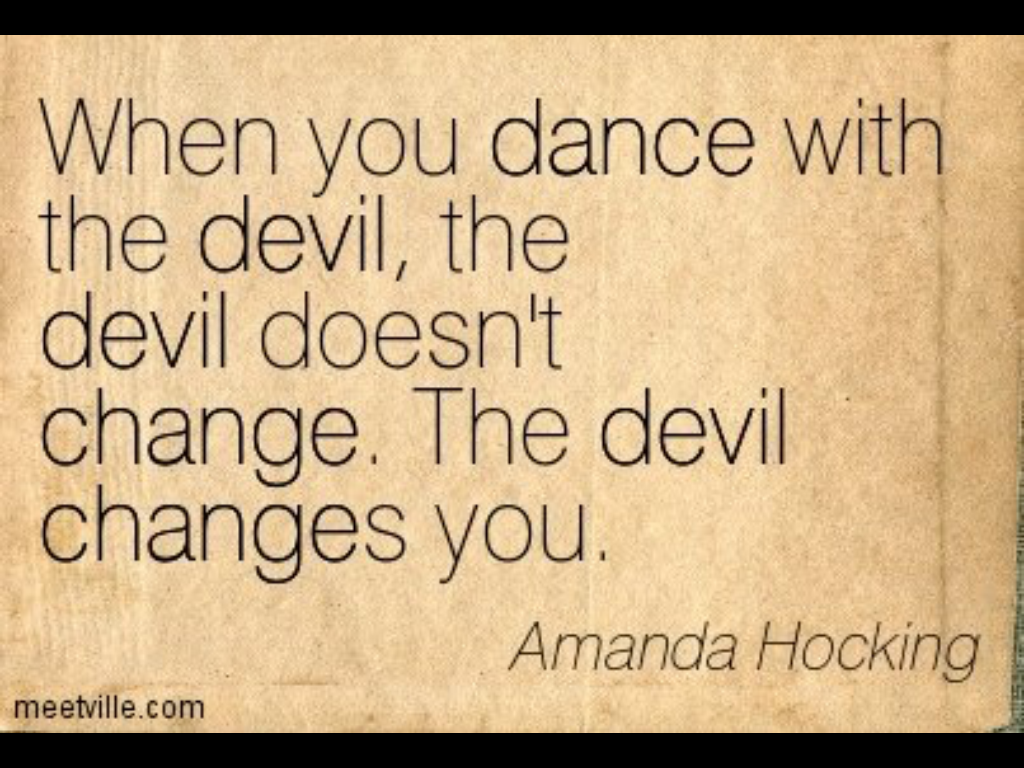 They are also masterful at digging into your deepest wounds and rubbing salt in them, all in the name of gaining narcissistic supply for themselves.
They are also masterful at digging into your deepest wounds and rubbing salt in them, all in the name of gaining narcissistic supply for themselves.
Their fear is that you will in fact find somebody who truly does love you the way that they never could. You leaving them is a total abandonment for them, even though they’ve done bugger all to actually make you want to stay.
Common “no one loves you” phrases used by the narcissist:
“No one will ever love you again.”
“No one can ever love you the way I do.”
“Not even your family love you as much as I do.”
I remember when my husband pulled some of these lines on me, I thought, “damn straight no one else will ever love me the way you do,” because if this is ‘love,’ I’m out!
They’ll fly into a rage
You can bet your bottom dollar that at some point after you’ve discarded the narcissist first, they’ll fly into a rage.
Some narcs may flip into a rage first up, while others will cycle through some of the devaluing and guilt-trip tactics first.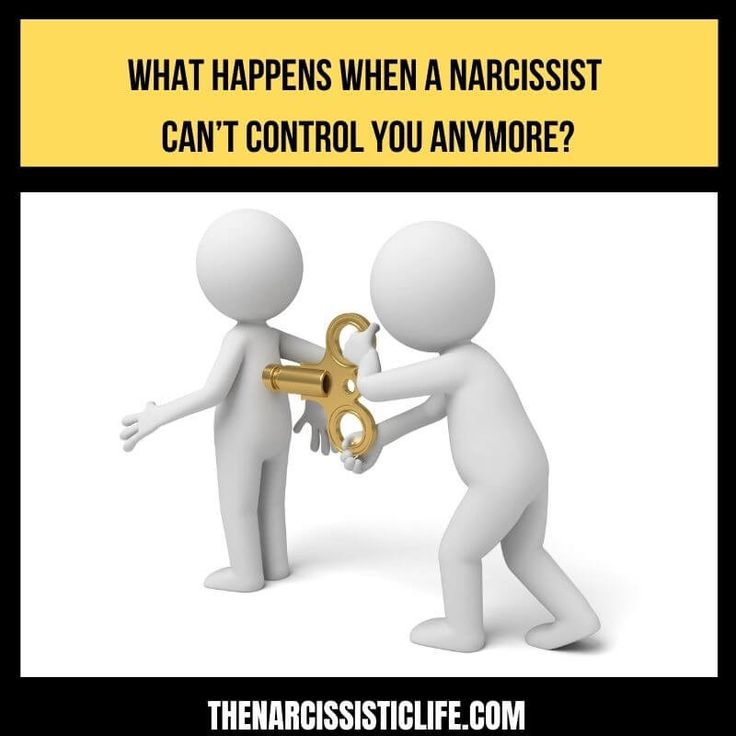
A narcissistic rage is purely an adult tantrum.
It’s basically, ‘I’m not getting my own way, and I want my own way NOW!’
AdvertisementsBut, narc rages can be scary to witness. Anyone who’s been on the receiving end will tell you how shut down they felt. These rages most definitely instil a sense of fear within the victim, especially if you’re dealing with a violent narcissist.
If you’re worried about your safety around a narcissist, it’s imperative that you get some help. Having a support person to be there when you have to converse with or confront a violent narcissist is highly recommended (although I know that’s always an easy task).
They will threaten you
Remember, you’re essentially dealing with an overgrown toddler here. So, when the other tactics aren’t working, the narcissist will throw in some threats just to round off the abuse.
They may threaten you financially, physically, materially, emotionally and/ or socially.
If they hold any of the pursestrings, they may threaten to not give you your money. When it comes to splitting assets, they’ll most definitely feel that they’re entitled to more than 50%. Advertisements
When it comes to material items, they will justify why they deserve more or deserve the better quality items. They may even withhold your belongings from you as ‘punishment.’
Violent narcissists may threaten you physically or scare you with stalker tactics. These types of threats can be particularly disturbing and sometimes very covert, which makes it hard to prove what they’re doing to other people.
They may threaten to spread complete lies about you publicly, serving to shame, alienate, discredit and ruin you.
One of the threats I received was, “well, I just don’t know if I can show up for the kids if you can’t give me what I want.” Just to clarify… what he wanted was sex.
AdvertisementsThreats can feel like such an extreme violation of your self, your freedom, your safety and your security, among other things.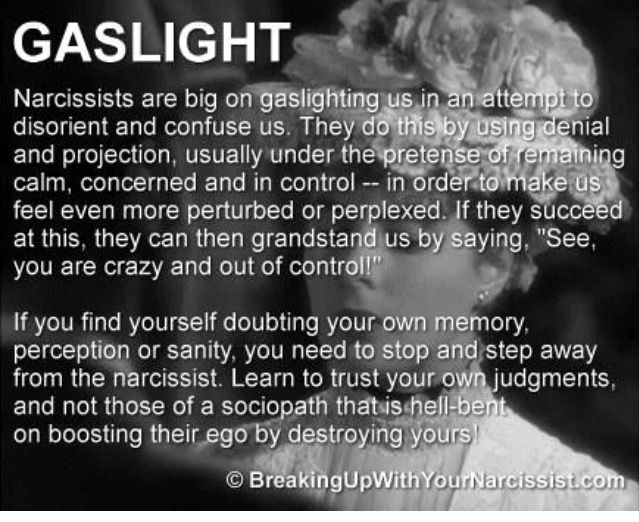
Oftentimes we just need to stand strong within ourselves and realise that we cannot control what the narcissist says or does, no matter how painful. Surround yourself with the right people who support you no matter what, block that mofo from your life (if possible) and let the chips fall where they may. Know that you are living a life of integrity, no matter what bs the narcissist pulls.
The narcissist’s biggest fear is people finding out who they truly are.
An empath’s biggest trigger is people NOT seeing who they truly are.
And that my friend, is the difference between a narcissist and an empath.
They’ll want to remain ‘friends’
A rather annoying thing that will happen when you discard the narcissist first is that they’ll actually want to stay friends.
This poses a big conundrum, because you really need to rid them from your life so that you can start to heal from the abuse and move on.
But, you moving on is the last thing that the self-absorbed narcissist wants. After all, you’re their toy and they’re not done with you yet. They want to keep you on their shelf, to be pulled down and played with from time-to-time as they please.
After all, you’re their toy and they’re not done with you yet. They want to keep you on their shelf, to be pulled down and played with from time-to-time as they please.
As narcissists are so obsessed with their appearance and how the world views them, they feel the need for everyone to think that you’ve remained ‘friends.’
That way, their image will stay intact and they will get the extra validation of, “you guys are so amazing. Even after a break-up you’re still good friends.” It plays right into the hands of their false self, which requires that absolutely everyone must like them.
Plus, as I’ve just mentioned, they want you to still be available to them for whenever they feel the need. Maybe they want to continue to be able to crash on your couch or borrow money off you. Maybe they just want to be able to use you to dump on and vent to about their day, in turn giving them an energetic supply.
Whatever the case may be, I strongly recommend cutting off any ‘friendship’ with the narcissist once you’ve ended the relationship.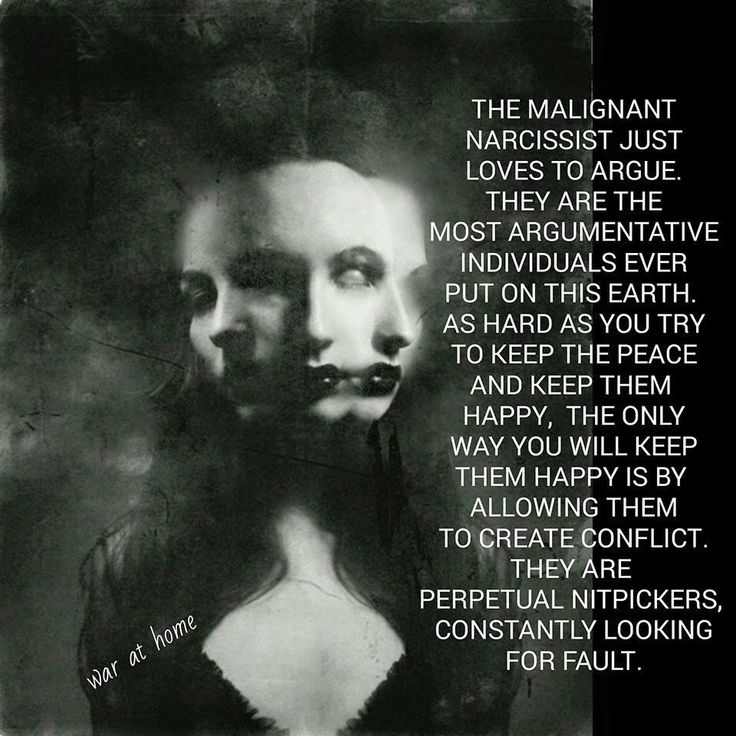 If you have to stay in contact with them due to children, work or family, opt for Low Contact. Keep the communication strictly factual and business-like, but nothing beyond that.
If you have to stay in contact with them due to children, work or family, opt for Low Contact. Keep the communication strictly factual and business-like, but nothing beyond that.
They will not take any responsibility for the relationship breakdown
I remember my narc ex asking me, in the most innocent of ways, during the break up, “if there was one thing that you didn’t like throughout the relationship, what was it?”
Little did I know that this was a trick question. I hesitated to share a slice of my honest truth with this man, but I thought, maybe this will give him some insight. Maybe this will help him grow into a better person for the future. How wrong was I.
I responded by saying, “well… I hate how you’ve always spoken to me like rubbish.”
At first, he seemed to show a small amount of remorse. He said, “I’m sorry for the times that I’ve spokes to you that way. Sometimes I just snap, I don’t know why I do it.” Notice that he’s already backing out of taking accountability.
The conversation continued, “I don’t know what comes over me in those moments. I don’t say anything about it later on because I don’t want to bring it up again.”
I replied with, “people always appreciate an apology.”
Before I know it, he’s starting to get angry, saying, “it takes two you know. Obviously you’re saying something to trigger me, which makes me react like that, which then triggers you.”
So, just like that, every time he swore at me and spoke to me like dirt underneath his shoe, it was my fault. And me feeling crappy about how he’d spoken to me was simply a ‘trigger,’ which was also all on me.
In the end, I had to basically bow out and agree to disagree because the torrent of anger coming from him just would not stop. Isn’t it amazing how quickly he’d turned his actions of ‘speaking poorly to me,’ straight back onto me. There is absolutely no responsibility being taken for his own rageful outbursts.
Here I was thinking that he could use this conversation as something to grow from, but nope.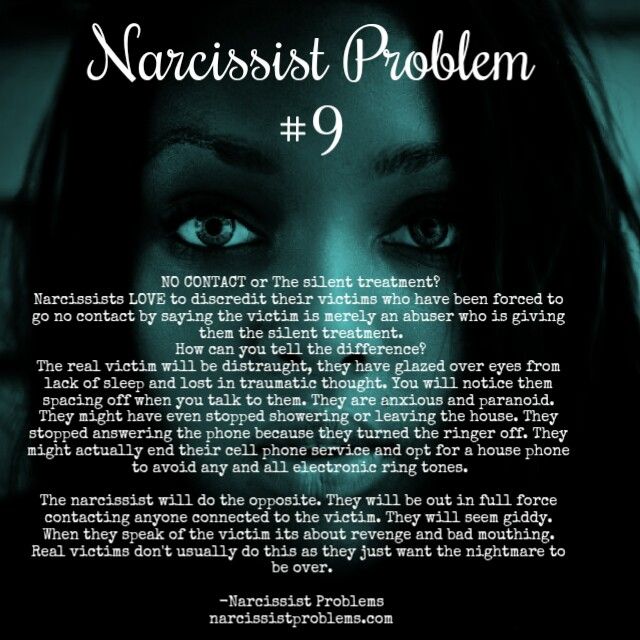 A narcissist doesn’t see anything wrong with themselves or their behaviour. If you don’t like being treated like crap, that’s your problem, not theirs.
A narcissist doesn’t see anything wrong with themselves or their behaviour. If you don’t like being treated like crap, that’s your problem, not theirs.
A narcissist will never take accountability for how their words or actions have contributed to the downfall of a relationship.
They will hoover you
As we’ve touched on, the narcissist will still expect you to be available for them at their whim.
When you discard the narcissist first, they will sneakily hoover you back in, just to keep you there on the hook. The narc also gets off on the the fact that they still have power over you, if you give in to the hoovering.
A hoover is anything that effectively hooks you back into their web. It’s an effective manipulation tactic, which can be disguised as something innocent.Advertisements
Examples of narcissistic hoovers:
- Random text message (even though you’ve gone No Contact)
- Offering a helping hand
- Sending gifts for the kids
- Giving you money out of the blue (so now you feel indebted to them)
- Showing remorse for their wrongdoings (even though historically, they’ve never actioned any true change)
- Using important dates to reach out (birthdays, anniversaries, holidays etc.
 )
) - Telling you how ‘perfect’ you are / how much they still love you / that you’re ‘soul mates’
- Start love bombing you again
- Promise you the world (although they have no intention of delivering)
- Urgently need you to help them with something
- Pretending like nothing has happened and that you’re both great friends
If you do find yourself hoovered back into a relationship with a narcissist, you can guarantee that the abuse will not stop, in fact, it will oftentimes get worse. The narc will resent the fact that they had to love bomb or hoover you in again and you must be punished for that behaviour.
They’ll want to control the storyline
When you discard the narcissist first, they will most definitely want to control the storyline around what other people hear and think.
Ultimately, the narcissist cannot risk having anybody see the truth of the situation, even if they’re completely in the wrong.
They must appear as the hero or the victim at all costs, depending on which strategy they’re going for. Advertisements
Advertisements
When I left the narcissist, he was constantly wanting to know who I’d spoken to, who I’d told about the split, what I’d told them and what they’d said in response.
Every time I saw him (unfortunately ‘No Contact’ was not possible with kids involved), he would be getting me into conversational corners.
He’d ask questions that really had no right answer. I was forced to either give him the answer he wanted, which would just validate his story. Or, if I spoke my truth, he’d gaslight and manipulate me, so that he could (attempt to) change my reality or my view on the situation, hence the storyline that I’d tell others.
There is no winning against a narcissist.
Except that by this point I was fully aware of his game, so there was nothing he could do to change my reality or storyline anymore.
Examples of questions he’d corner me with:
“I never made you feel like you couldn’t spend money, did I?”
“Did I ever stop you from seeing your friends?”
“Did I ever tell you that you had to cut out your family?”
“I never made you give up work, did I?”
The intention behind these types of questions is for the narcissist to control the story that you’re telling others.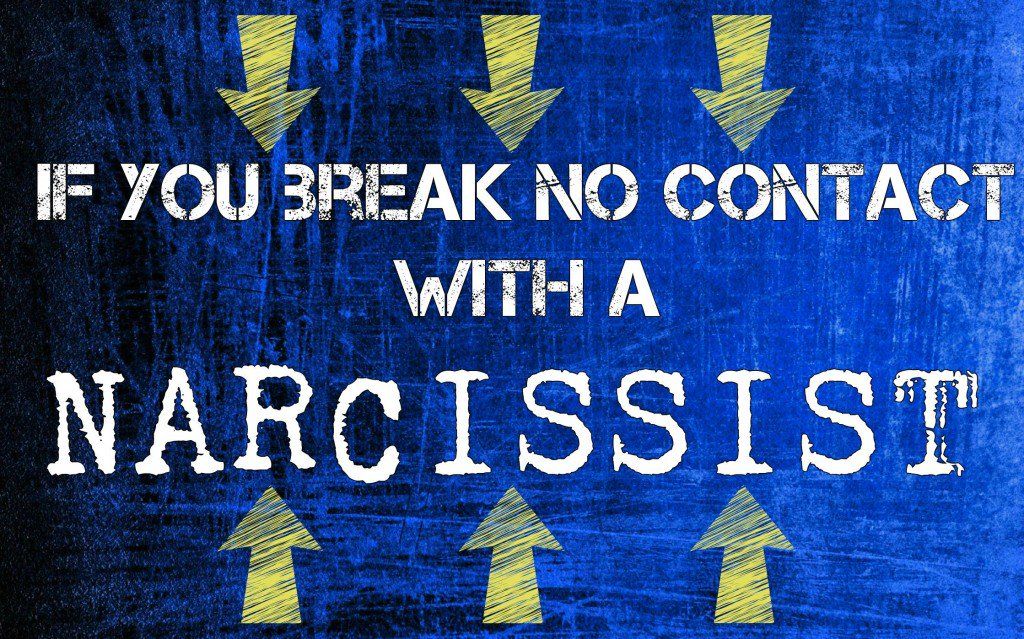
If you agree with what the narcissist says, it serves to further strengthen their own story, which they’ll spew out to anyone who will listen. Plus, by you agreeing with them, you’re actually consenting to their version of events.
On top of that, you can never ever retract your agreeance with a narcissist. If you ever disagree with that topic or event at any point in the future, they will say, “but you said you agreed with me, why did you lie?” or “that’s not my problem that you’ve changed your mind.”
A narcissist is forever moving the goalposts.
AdvertisementsIf a narcissist corners you with a question (which clearly has no correct answer) and you disagree with their agenda, get ready for an argument!
They will be throwing all sorts of unrelated topics and accusations at you and have you caught up in a word salad before you have time to think. Next thing you know, you’re having to defend yourself at every move. You’ll be trying to explain yourself in the most logical and rational way possible, but it won’t make a scrap of difference.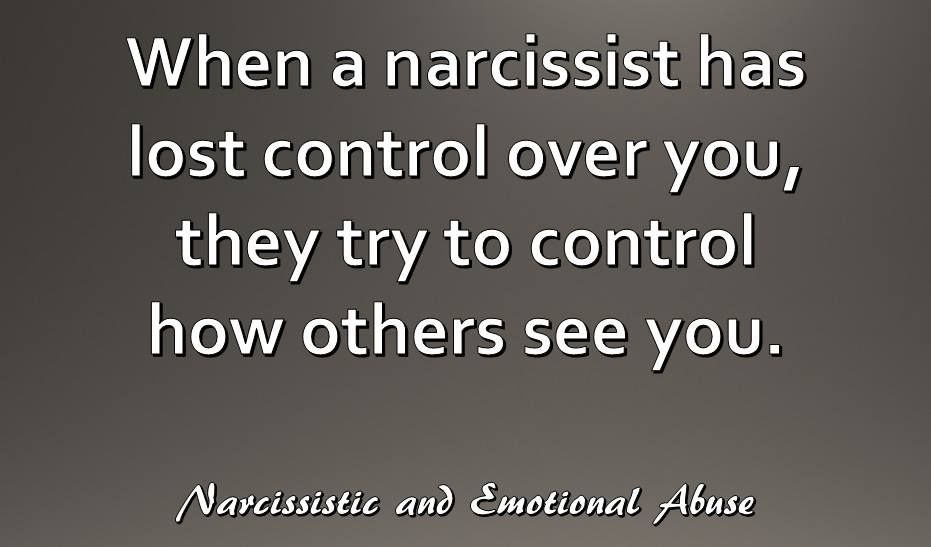 You will be so deep into the narcissist’s manipulations and gaslighting, that eventually, you’ll most likely end up admitting defeat, just out of sheer exhaustion.
You will be so deep into the narcissist’s manipulations and gaslighting, that eventually, you’ll most likely end up admitting defeat, just out of sheer exhaustion.
They may conduct a smear campaign
One of the most infuriating, damaging and hurtful things that can happen when you discard the narcissist first is that they will embark on a smear campaign against you.
A smear campaign is one of the major ways that the narcissist will control the storyline of not only the break-up, but the relationship in its entirety.
The smearing can happen on social media, through the narcissists flying monkeys and with the narc getting to people before you can, just to paint their version of events.
You can guarantee that the narcissist will leverage their social media accounts to paint the picture of themselves as being the hero or the victim at the hands of you.
It could be the ‘poor me’ tactic, where they’ve given you everything and done everything for you and yet you selfishly left them. You’re an evil person!
You’re an evil person!
Or, they could go for the other tactic and show the world how amazingly they’re doing without you. Because, after all, you were just holding them back from living to their true potential this whole time. Obviously, they’re the amazing, successful one, not you.
Flying Monkeys
Flying monkeys in a narcissistic dynamic are the people who not only believe the narcissist’s stories, but they will willing do the work of the narc. They may spread gossip, which further enhances the narcissist’s storyline and they won’t hesitate to make you look like the bad guy.
Another common trait of the flying monkey is that they will come to you as a ‘concerned friend.’ You may feel comfortable enough to open up to them, but unbeknownst to you, the flying monkey is merely spying on you and gathering information to take back to the narcissist.
It’s really just a game where the narcissist creates competition amongst others and collects the people who are ‘on their side.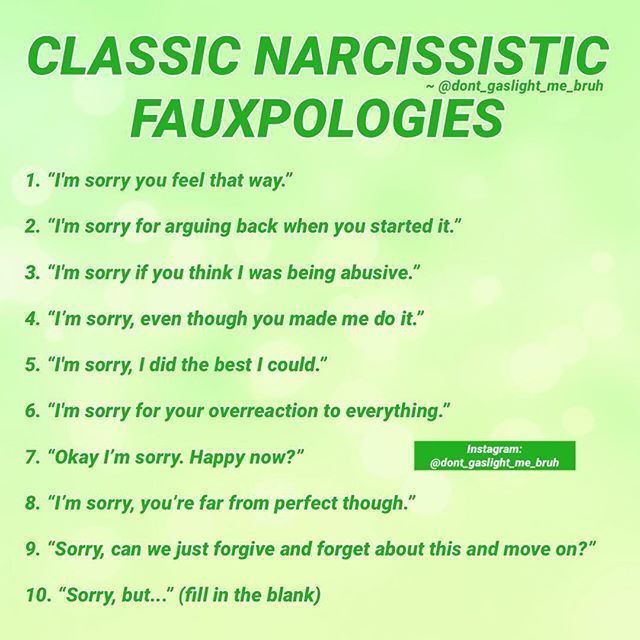 ’ This way they can treat them as pawns to use at their disposal.
’ This way they can treat them as pawns to use at their disposal.
The flying monkey may feel special to be a part of the narcissist’s inner circle, or there may be other perks, which appeal to them. Maybe the narc shouts them drinks all the time and invites them out, making them feel included.
In reality, the flying monkey often doesn’t fully realise that they’re being used, until the narc discards them once they’re done with them.
These flying monkeys prove to be extremely useful in publicly smearing someone who has discarded the narcissist, as they are the ultimate enablers of the abusive behaviour.
Getting into the ears of others
Another thing that will probably happen when you discard the narcissist first, is that they will get into the ears of others before you can.
This tactic is particularly heartbreaking when the narc gets to your personal family and friends before you have a chance to even talk to them. You won’t even have the opportunity to talk about what’s happened without those people already having the scene set in their minds.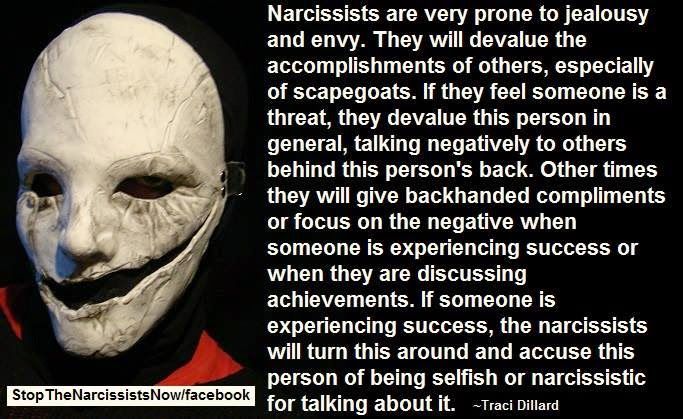
You can bet that the narcissist has painted themselves in the light of the victim, which can only leave you as the perpetrator. Even though you know in your heart that it’s rubbish, will all of your friends and family believe what you have to say when the narc has already been there, bawling their eyes out and pulling at their heartstrings?
The best advice that was given to me by a friend was that ultimately, the right people in your life will back you and believe you without question. Some of them have probably already noticed little things that weren’t right in the relationship or with the narcissist, but had never mentioned anything. And the people that do believe the narcissist are not your friends anyway – they don’t deserve a place in your life.Advertisements
I remember having a falling out with my narcissistic sister-in-law years ago. The first thing she did was ring my Mum and tell her what had happened from her own self-serving perspective. By the time I got a chance to speak to my own mother, she did not have my back.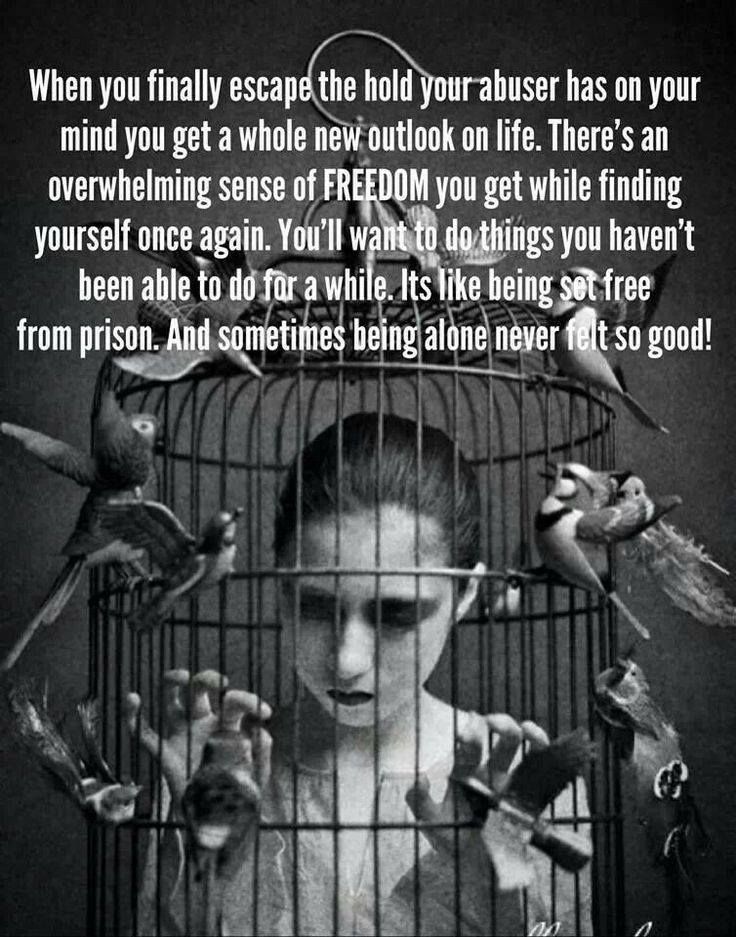 She totally believed everything my sister-in-law had said. Along with that, my Mum made it clear that she wasn’t getting involved, therefore the topic was closed with her. I was totally alienated from my own mother at the hands of a narcissist.
She totally believed everything my sister-in-law had said. Along with that, my Mum made it clear that she wasn’t getting involved, therefore the topic was closed with her. I was totally alienated from my own mother at the hands of a narcissist.
They may help you move out
Okay, I know this is a bizarre one, but let me explain.
Remembering that the narcissist cannot stand the thought of people seeing the real them, they will be putting on the whole ‘nice guy/ nice girl’ show for the world.
They don’t want people to hear along the grapevine that they’ve thrown your belongings onto the front lawn and keyed your car – because that would make them look crazy, right?
So, instead, the narcissist may actually help you move out into another place, just so that they can assume the ‘hero’ role. It’s imperative to them that all of your mutual friends and family see them as being perfect.
They also want everyone to see the separation as amicable (no matter what the reality is). Particularly if there’s any risk of you telling some of these people about the real reason you’re leaving their ass – because of their abusive behaviour.
Particularly if there’s any risk of you telling some of these people about the real reason you’re leaving their ass – because of their abusive behaviour.
Another layer to the ‘helpful ex’ role is to protect themselves by controlling the storyline. If you do share some of what went on behind closed doors, their nice exterior makes it harder for people to believe that they were actually extremely abusive.
They will replace you quick smart
After the narcissist has guilted you, threatened you, gaslighted you some more, raged at you, smeared you publicly, devalued you and hoovered you back in, then they will replace you.
Two weeks after my husband was still declaring his undying love for me and saying that he’ll never love anyone ever again, he’d swapped me out. I’m not even joking.
Even though I knew my very recent ex was a narcissist, it was still an incredible blow to be replaced with a new supply within months of the separation. I mean, we’d been together for 20 years, since our early twenties.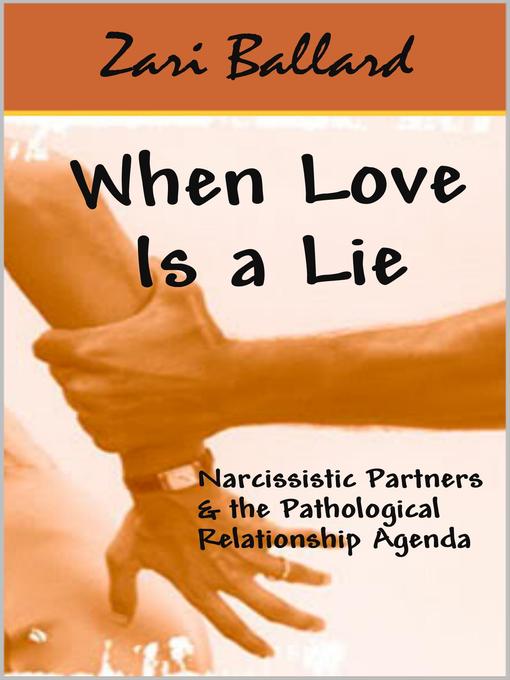 He claims that he didn’t see the separation coming, it was a complete shock to him. And yet, here he is just two months later with a new girlfriend.
He claims that he didn’t see the separation coming, it was a complete shock to him. And yet, here he is just two months later with a new girlfriend.
That was when I really had to face the fact that he’d never truly loved me to begin with. Sure, he loved what I’d given to him… my energy, time, compassion, empathy and my youth. I’d given him everything and even when he demanded more, I gave him that too.
But ultimately, he was a hungry narcissist who was desperate for a new energetic supply to feed off. He has no direct energetic source of his own, the only way he knows how to get it is to take it off others, not unlike a vampire.
Although it hurt like hell, ultimately I was free.
RELATED POSTS:
◆ Positive Aspect of a New Supply →
◆ Do they Treat New Supply Better? →
◆ Does the Narcissist Miss You? →
Video
If you’re interested in seeing more on what happens when you discard the narcissist first, check out the video below by Mental Healness.
Interestingly, Lee is a self-aware diagnosed narcissist. After he was set to lose everything, he resonated with being a narcissist and has been going to therapy ever since, to try and learn how to be a better husband and father.
His channel is raw and real and you’ll get some great insights into how the narcissist’s mind works. Lee now works to educate people on narcissism and is the first guy to tell you to get out and go No Contact!
Pin It
Share It!
37 shares
When you Discard a Narcissist First, this Happens
By Pacifique N. Daxton
Narcissists are well known for their automatic response of devaluing or discarding their partner whenever there’s a conflict that affects the narcissist’s ego. But, what happens when you discard a narcissist first? How do they feel and what do they do?
How a narcissist feels when you discard them greatly depends on how important you’re to them. The more important you are, the higher the effects of the discard will be. Below is how narcissists feel when you discard them first.
The more important you are, the higher the effects of the discard will be. Below is how narcissists feel when you discard them first.
If you have ever had a wound on your body, you probably know how painful it is when a cloth or anything touches it. Emotional wounds are not different. Whenever someone touches your psychological unhealed wounds, you get emotional pain. So what does this have to do with discarding a narcissist first?
All narcissists in general have different types on unhealed psychological wounds. In my article “what makes a narcissist panic”, I explained how a person becomes a narcissist when they go through a horrible life experience that leaves them ashamed of who they are. Therefore, they develop narcissism as a defense mechanism.
For example, a narcissist who developed emotional wounds as a result of being neglected in childhood will be so sensitive to being abandoned in adulthood. When you discard this narcissist first, you will subconsciously remind them of the painful experience they went through, and this will cause them what some psychologists call a narcissistic injury.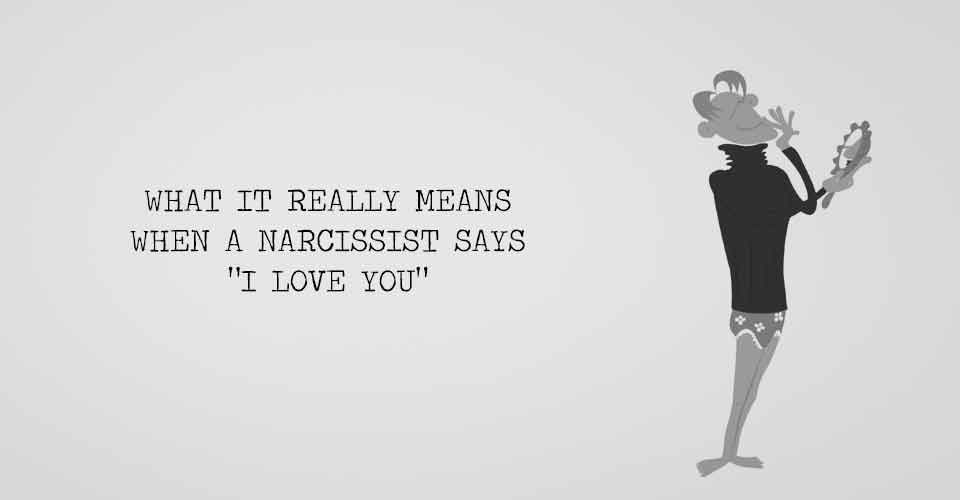
You may be thinking that if the narcissist was pampered, and not neglected in childhood, then the discard would have no effect on them but that’s not true. While narcissists who were neglected will try their best to never go through a similar life experience, a narcissist who was pampered will strive to rebuild the little environment where they were treated like a king (at home). If this narcissist luckily gets someone who treats them as their parents did, then the last thing this narcissist will want is to lose that person.
2) Their Empathy Shuts DownContrary to popular belief, narcissist can have empathy given that they are in a the right psychological state. When a narcissist feels like their authority is being challenged, their empathy temporarily shuts down, and they can be so mean, vindictive, and cruel.
One of the things that can make a narcissist feel attacked is dumping them.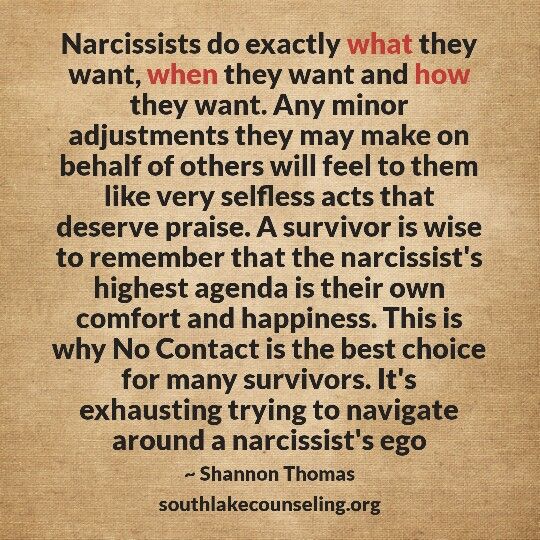 Discarding a narcissist first is an implication that they are not important, and this is direct attack to their ego. Narcissists consider themselves better than other people and this makes them believe that they are the one in a position to discard others, not the other way round.
Discarding a narcissist first is an implication that they are not important, and this is direct attack to their ego. Narcissists consider themselves better than other people and this makes them believe that they are the one in a position to discard others, not the other way round.
As I said, whenever there’s a conflict that affects a narcissist’s ego, they automatically label the person who hurt them as worthless and inferior. This helps them ease the pain because being dumped by a worthless person shouldn’t hurt anybody, right?
However, devaluing the person who hurt them doesn’t always work especially if that person appears to be too important to be considered worthless. In this case the narcissist will try to revenge to make you regret dumping them.
4) They Find it Hard to RecoverIn my article “why do we obsess over people who don’t want us”, I said that when someone gets ignored, they usually jump to conclusions that they were ignored because of their flaws.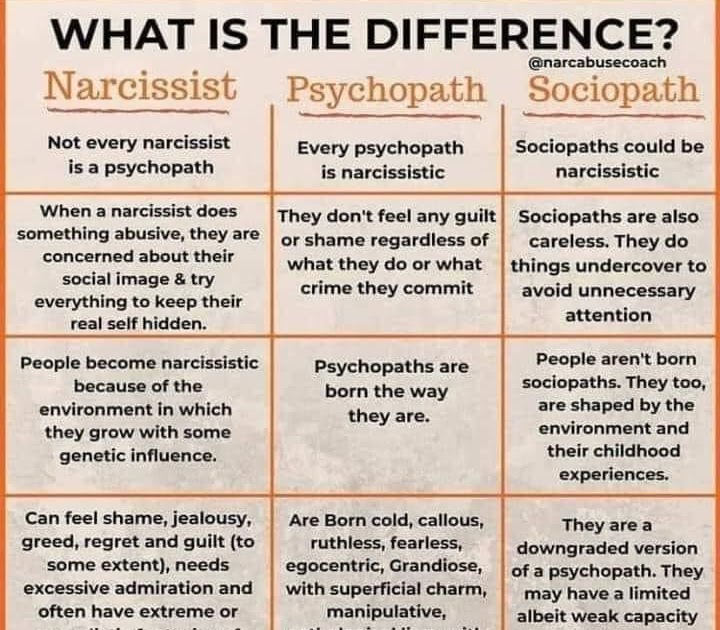 Narcissists are not different. They also have insecurities.
Narcissists are not different. They also have insecurities.
Most of the time, when you get dumped you don’t actually feel bad because you love that person so much, but you feel bad because you don’t know why you got dumped. If you knew very well that your partner dumped you because they believe you deserve someone better, you won’t feel that bad. On the contrary, if you believed that you got dumped because of your weight, the breakup will not only be unbearable but you will also find it hard to recover and move on.
Painful path of the narcissist | v1.ru
Share
So you want to become someone significant, important, memorable! Everyone wants it, I assure you. If you don’t become famous all over the world and enter the annals, then at least have a small, but unique feature. Well, at least somehow in a special way to cook borscht, tell jokes or even get sick.
A psychological feature inherent in everyone, what can you do... People are divided into those who recognize this in themselves, and those who, for some mysterious reason, do not yet want to admit it. Feeling unique is so “right” from a psychological point of view. But some of us have a certain predisposition to consider ourselves not just unique, but unique in our greatness or our insignificance. Inside each of us lives a narcissist, but how he lives there - that is the question. nine0003
Feeling unique is so “right” from a psychological point of view. But some of us have a certain predisposition to consider ourselves not just unique, but unique in our greatness or our insignificance. Inside each of us lives a narcissist, but how he lives there - that is the question. nine0003
Everyone has narcissistic traits. They are just expressed to varying degrees. And to varying degrees they interfere or help to live. The system of education, the peculiarities of the mentality, the values of society - literally everything contributes to the fact that narcissism as a psychological feature or even as a pathological character flourishes and takes root deeper and deeper. In everyday life, a narcissist is usually called a person who is narcissistic, selfish, fixated on himself. Almost everyone remembers from school lessons the myth of Narcissus, who died untimely from boundless love for himself, and about the woman who punished him, forcing him to die from narcissism over the clear waters of the stream.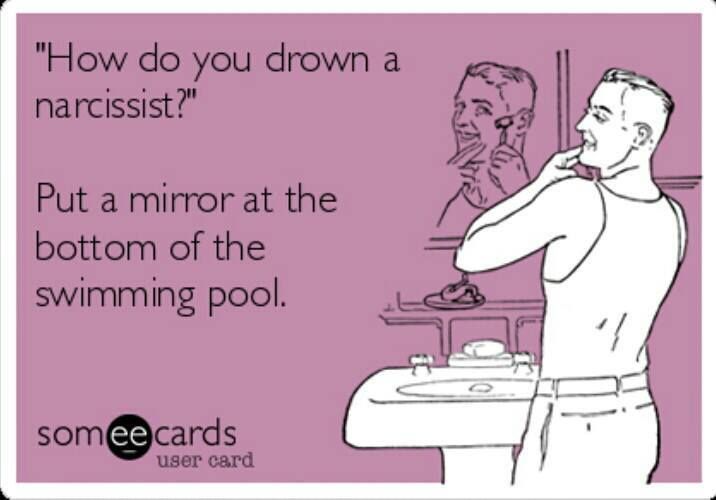 nine0003
nine0003
Symptoms of narcissism
In psychology, we talk more about narcissistic disorders or narcissistic character, which only remotely resemble the everyday idea of a young man from ancient Greek myth. So, the classic symptoms of narcissism.
1. Feeling of inner emptiness. The narcissist himself describes it this way: “It is a vacuum, an emptiness, always whistling in you, always chilling your back. And whatever you do, whatever you achieve, everything falls into this black hole. All the time there is an illusion that the hole is about to be filled, of course, not by a series of small victories and small achievements that no one needs, but by something great. Only a grand victory can plug this hole forever! That's why I refuse small victories: what's the point if they do not bring deliverance, if they do not fill and patch holes in me. That is why I am waiting for a big victory, as salvation, as a reward for my torment. nine0003
Everything comes from childhood, including the “narcissistic hole”. If we were once loved for our accomplishments, our functionality, then it's no surprise that as we grow up, we're left with the feeling that we'll only be loved if we become "perfect function." The function “child” or “my son”, “my daughter” can include anything, but, as a rule, it includes performing very specific tasks: doing homework, getting “five”, cleaning the apartment, acting in accordance with parental expectations (often contradictory). nine0003
If we were once loved for our accomplishments, our functionality, then it's no surprise that as we grow up, we're left with the feeling that we'll only be loved if we become "perfect function." The function “child” or “my son”, “my daughter” can include anything, but, as a rule, it includes performing very specific tasks: doing homework, getting “five”, cleaning the apartment, acting in accordance with parental expectations (often contradictory). nine0003
2. Valuation and depreciation. A person with narcissistic disorders tends to constantly evaluate everyone around, compare himself with others. After all, that's what his parents did to him. They endlessly evaluated his actions and actions, and also compared him with other children, set someone as an example to him in the hope that the future narcissist would improve and be equal to positive examples.
As a result, the first thing the parents achieved was to make their child eternally dependent on external evaluation, constantly ready to issue a critical remark both in his address and in relation to the whole world. As a result, the narcissist is usually dissatisfied with himself and the world around him. Secondly, they did not teach him to look for himself, to be aware of his own characteristics, and in accordance with this, choose his niche for self-realization, but taught him to endlessly compare himself with someone, and since the criteria are high, the comparison is usually not in his favor. . This inevitably gave rise to a hidden conflict in the child: on the one hand, he wanted to feel unique and inimitable, on the other hand, he quickly got used to comparison, which means that he is just “one of”, and besides, as a rule, he does not the best. nine0003
As a result, the narcissist is usually dissatisfied with himself and the world around him. Secondly, they did not teach him to look for himself, to be aware of his own characteristics, and in accordance with this, choose his niche for self-realization, but taught him to endlessly compare himself with someone, and since the criteria are high, the comparison is usually not in his favor. . This inevitably gave rise to a hidden conflict in the child: on the one hand, he wanted to feel unique and inimitable, on the other hand, he quickly got used to comparison, which means that he is just “one of”, and besides, as a rule, he does not the best. nine0003
Parents often mistakenly believe that only a child who is praised a lot can become a narcissist. This is definitely a delusion. It is not necessary to praise at all, it is enough to evaluate and compare, focusing mainly on the achievements of the child, and not on himself. Since the little narcissist has received the message from his parents that he is never good enough and not successful enough, he develops a mechanism called devaluation. Everything that is achieved by hard work or often incredible efforts (after all, he strives for perfection, and perfection is simply not given), all this is recognized only today, and tomorrow it means nothing. nine0003
Everything that is achieved by hard work or often incredible efforts (after all, he strives for perfection, and perfection is simply not given), all this is recognized only today, and tomorrow it means nothing. nine0003
Only a few years will pass, and for an already matured narcissist, a successfully made film, a brilliant book, a magnificent picture, a Nobel Prize will only matter at the moment of recognition, just a few minutes or days he will consider himself worthy and successful. The next day, he will again begin to consider himself completely mediocre, unable to do anything, starting everything from a “white sheet”.
Very often the narcissist tries to save himself from the ubiquitous devaluation and the all-pervading emptiness by trying to fill his inner hole with cars, apartments, careers, status, money, power. But his personal tragedy is that it is always not enough for him, and the more ways and means he has already tried to plug the hole, the less chance he has. That is why the suffering of narcissists, who “already have everything”, is the most powerful and suffocating.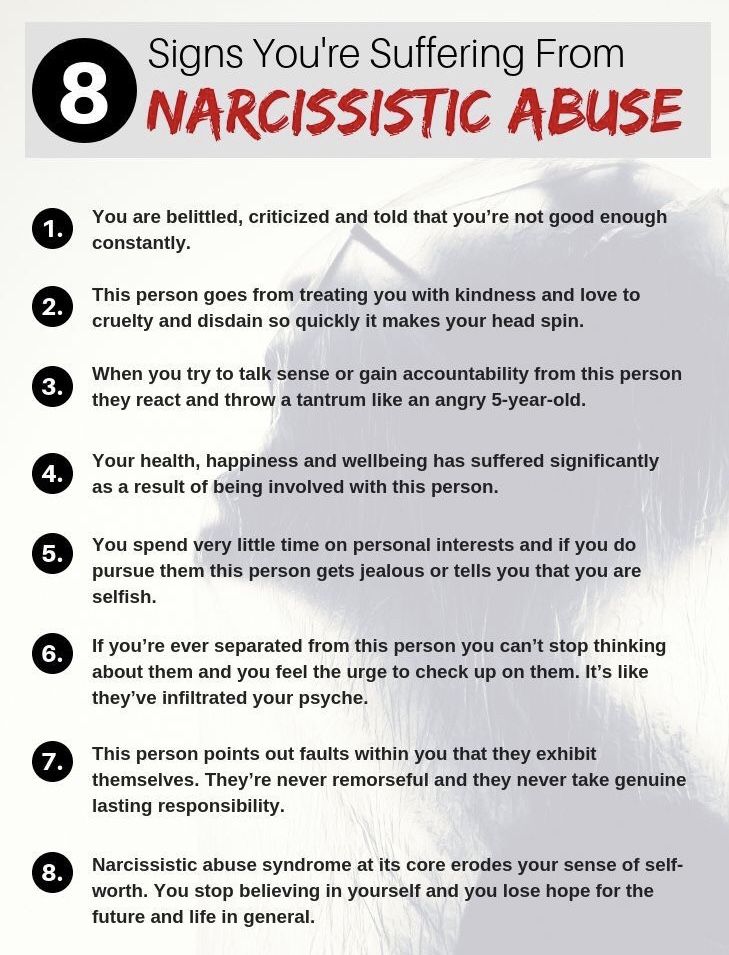 nine0003
nine0003
3. Large amplitude pendulum. The narcissist is basically in two polar states. He is either divinely beautiful and omnipotent (during periods of recognition of his achievements), then he is a complete failure and insignificance (during periods of his mistakes or non-recognition). Exactly. The polarity is not “good - bad”, but “divinely cool - complete insignificance”. And therefore, he can often easily and imperceptibly for himself and those around him find himself in any of these states. The toggle switch for switching the state is always the same: external or internal assessment, one way or another connected with external recognition or self-recognition. nine0003
The pendulum, on the one hand, makes the life of a narcissist emotionally bright and rich. From the constant change of confessions and non-recognitions, he either plunges into the depths of suffering, then takes off into the skies of euphoria. But on the other hand, the greater the amplitude, the greater the depletion. Such clients are more likely to be in a debilitating depression, because during periods of rare euphoria they are active and spend a lot of mental and physical strength. And depression is often the only way to “ground yourself”, accumulate strength, justify your own inaction, behind which, in fact, is the fear of once again experiencing disappointment from your own failure. nine0003
Such clients are more likely to be in a debilitating depression, because during periods of rare euphoria they are active and spend a lot of mental and physical strength. And depression is often the only way to “ground yourself”, accumulate strength, justify your own inaction, behind which, in fact, is the fear of once again experiencing disappointment from your own failure. nine0003
It is important to understand that it is really difficult for them to decide on something, the risk of a possible difficult experience of their own insignificance is so great. The older they get, the more difficult it is for them to undertake any undertaking, any new activity, because it seems to them that they must certainly cope with everything, and at once and not just by five, but unattainably flawlessly. And since it is impossible to sit on a bicycle for the first time and immediately go without falling or even wagging the wheel, mistakes are inevitable, they frighten those who want to be "divine" narcissists at all costs.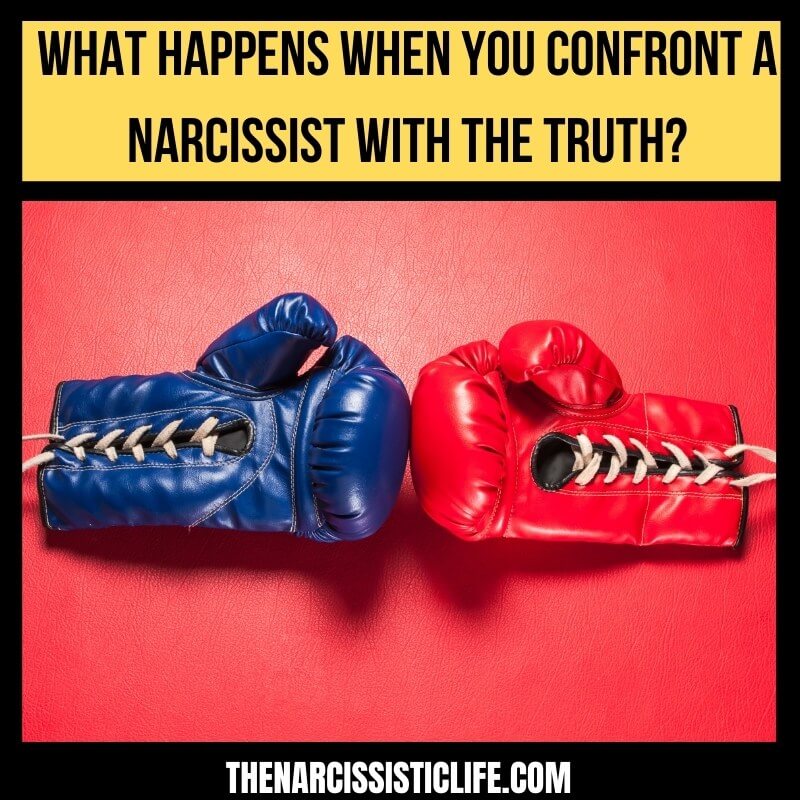 nine0003
nine0003
Since such people see themselves through two narrow tubes “divine” and “insignificant”, the surrounding world seems to them exactly the same. They are characterized by polar judgments and assessments of people, phenomena, events. They usually either idealize them or "lower them". Moreover, in close relationships with people, idealization is replaced by depreciation successively: first, a person is put on a pedestal, and then he is thrown off it with a deafening roar.
4. Escape from relationships. The narcissist longs for a close, accepting relationship, one that he was never able to build with his own parents. He often strives irresistibly to merge in the secret and unsuccessful hope of having his own "I" through merging with another, while at the same time he has a fear that his "I" during the merger will be absorbed by another and disappear. nine0003
He is never able to fully open up, trust, and it is clear why: in childhood, when he was so open and insecure, he was hurt by the condemnation and criticism of his parents, his "I" was subjectively destroyed by inattention, ignorance, humiliation.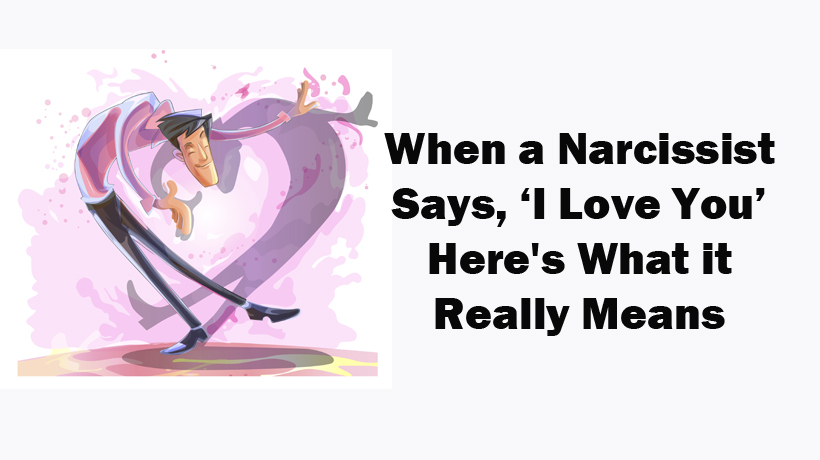 For him, to trust means to expose himself to a colossal risk, and therefore the narcissist is more likely to look for those who can merge with him, he is always on guard of his own borders, and merging with him is always illusory.
For him, to trust means to expose himself to a colossal risk, and therefore the narcissist is more likely to look for those who can merge with him, he is always on guard of his own borders, and merging with him is always illusory.
True intimacy implies a meeting of two deep and authentic "I", but the "I" of the narcissist is alienated from himself, instead he feels only emptiness, and therefore meeting with him is impossible. The partner in the relationship suspects the presence of the true "I" of the narcissist and he really wants to "get" to him. This is why daffodils are so attractive. Their partners are "intrigued" by the invisible, but somewhere present "I", and they diligently "warm up" Kai's frozen heart in the futile hope of meeting. nine0003
Desperate to receive all-encompassing love, which is never able to warm the icy heart, because it is not maternal love, the narcissist begins to seek at least recognition. For this, he does not need close relationships, for this he needs fans.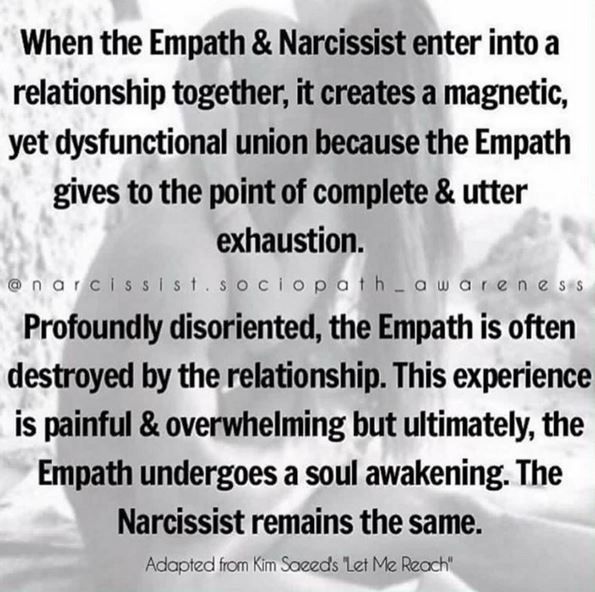 A change of admirers or admirers is what the narcissist usually stops at.
A change of admirers or admirers is what the narcissist usually stops at.
The tragedy and joys of the "flower"
The tragedy of the narcissist lies in the impossibility of recognizing and appropriating his true "I" (or the severe difficulty of this process). Disconnected from himself, the "I" creates a feeling of emptiness and lack of support, which gives rise to basic insecurity and anxiety in the narcissist. He is forced to rely on the assessments of the outside world, and they are always contradictory and constantly replace each other. From these assessments, he seeks to mold his image, but it falls apart due to their inconsistency and total subjectivity. Therefore, he is never completely sure of himself, does not know what he can do, what he is and whether he has "the right to live with his head held high." nine0003
Brief joy of the narcissist: victory, triumph, achievement, recognition. At these moments, he understands that he does not just have the “right to live”, but is omnipotent, especially smart, beautiful, insightful, that he has created something that will now allow him to feel not just good, but great for the rest of his life. Joy is strong, but short-lived, from a few minutes to several weeks. Then - a crushing collapse and again a sucking emptiness inside.
Joy is strong, but short-lived, from a few minutes to several weeks. Then - a crushing collapse and again a sucking emptiness inside.
The main pain: strong, constant and deep suffering from the imperfection of the world - from inaccuracies, flaws, oversights, militant stupidity, unaesthetic, vulgarity, vulgarity, that simplicity that is worse than theft. An oppressive feeling of impotence from the impossibility of creating your own "correct and just" world. Escape of finality, difficulty in completing something, incredible effort to start something, fear of change. nine0003
Often experienced feelings
Shame - as a total feeling of one's own badness, uselessness, worthlessness, worthlessness. The "inner critic" of the narcissist is constantly on guard, not a single movement of the soul, not a single deed, action, deed will be hidden from his critical gaze. Inaction, by the way, is also followed by a strict condemnation from this never-sleeping inner character. The “accuser” inside the narcissist has long taken possession of almost the entire internal space and is conducting his strict court in violation of all legal norms (that is, bypassing the internal judge and lawyer). Once such an accuser was one of the parents of the narcissist, now he is doing just fine without outside help, now his inner critic is a reliable and eternal generator of shame. nine0003
The “accuser” inside the narcissist has long taken possession of almost the entire internal space and is conducting his strict court in violation of all legal norms (that is, bypassing the internal judge and lawyer). Once such an accuser was one of the parents of the narcissist, now he is doing just fine without outside help, now his inner critic is a reliable and eternal generator of shame. nine0003
The narcissist is accustomed to pushing shame to the back of his consciousness, because he is unbearable, because he is constantly present, it is not even a background, but a constant figure through which he looks at the world. Meeting a psychotherapist or counseling psychologist is an inevitable meeting with one's own shame, which is why narcissists often bypass our offices for many years, and if they find themselves in them, they drag a huge shield of shame and anger in front of them, protecting them from the horror of "exposure". ". nine0003
Guilt is also a permanent feeling in the narcissist. Moreover, it is characterized by all three types of guilt. Real guilt will haunt him after his critical assessments reach the ears of his loved ones, and he will face their reaction, which is not always accepting of these assessments. Neurotic guilt is present in his life, because he did not fully meet the expectations of his parents, and even his own.
Moreover, it is characterized by all three types of guilt. Real guilt will haunt him after his critical assessments reach the ears of his loved ones, and he will face their reaction, which is not always accepting of these assessments. Neurotic guilt is present in his life, because he did not fully meet the expectations of his parents, and even his own.
Ontological guilt will also always be in the background, because, due to the inability to connect with his true "I", the narcissist, most likely, will not be able to become what he could become, which means that he will never be able to "reincarnate". For all his life, he may never know who he is and who he should be by nature, what to do. Which is not surprising, since his parents saw in him only a function of applying their parental expectations, visions, needs. nine0003
As you know, guilt, constantly carried in oneself, often calls for release, therefore, narcissists, tired of constant self-accusation, constantly fall into blaming other people.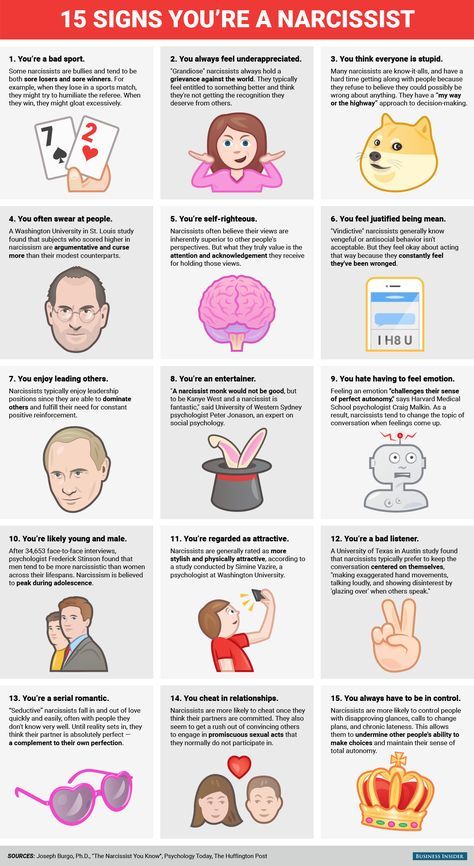 They take the blame outward, forcing their inner critic to turn their backs on self-criticism and focus on the world around them. Fortunately and grief for the narcissist, the world around us is monstrously imperfect and therefore there is always something in it to which accusations and criticism can be directed.
They take the blame outward, forcing their inner critic to turn their backs on self-criticism and focus on the world around them. Fortunately and grief for the narcissist, the world around us is monstrously imperfect and therefore there is always something in it to which accusations and criticism can be directed.
Anxiety is a constant companion of narcissists, which is also not surprising. The lack of internal support, comparing oneself with others, constant readiness for criticism, the inability to finally appropriate one's own merits, resources, previous achievements, experience make the narcissist insecure and anxious. He is always in anticipation of failure, in anticipation of a situation with which he supposedly will not be able to cope. Two evil dwarfs according to J. Hollis - Fear and Inaction - wait for him at the head of the bed every morning and "devour him alive." The fear of meeting the unpredictable and the imperfect often paralyzes the narcissist for months and even years, forcing him to stay where he is: in a bad job, in an uncomfortable apartment, with an "inappropriate" wife.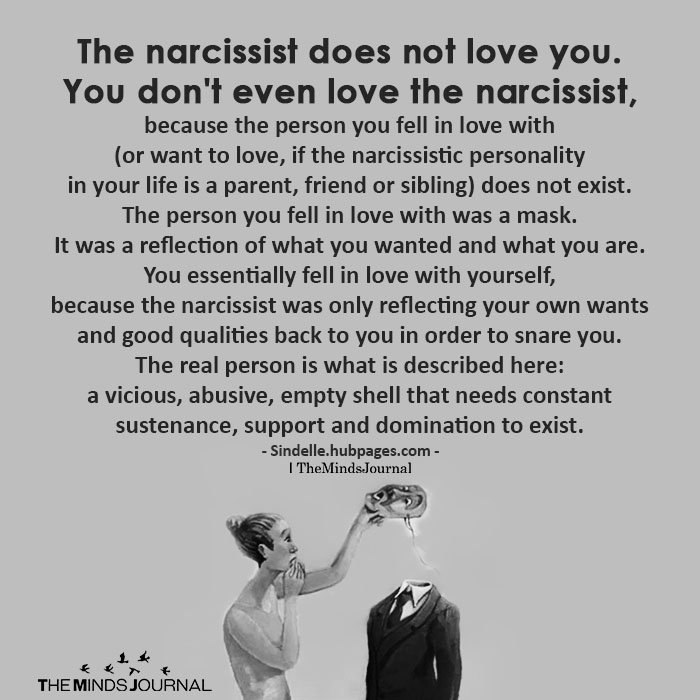 The fear of making a mistake often makes choices impossible, and the fear of being incompetent holds back from development and change. nine0003
The fear of making a mistake often makes choices impossible, and the fear of being incompetent holds back from development and change. nine0003
The narcissist's main fear is to face his insignificance, uselessness. The fear of being unnoticed or insignificant is even stronger than the fear of rejection. A scolding mother is painful, insulting, but familiar, but ignoring, a message about one's own insignificance is really scary. The narcissist agrees to be guilty, but to make him feel insignificant (and for this he doesn’t need much, he is secretly always ready for this) - publicly expose him, undress and parade him. nine0003
Because all his defenses are working to ensure that he can avoid the feeling of an inner hole and his own alleged insignificance. The narcissist experiences fear in two ways: either he attacks the offender, accusing him of all imaginable and unimaginable sins, or he goes into depression, often accompanied by some kind of psychosomatic illness, since care and care during illness help to heal his spiritual wounds at the same time.
Healthy manifestations of narcissism
• We do not run away from our emptiness and do not fill it with whatever we have to, but courageously dwell in it in an attempt to hear and understand ourselves.
• Our mistakes are accepted by us with regret or repentance, accompanied by an attempt to deal with not only the internal "accuser", but also the "lawyer".
• We may be upset or happy about someone's evaluation, but it does not affect our activity, does not stop or determine it.
• We strive for recognition. But this is not the only purpose of our life. We care not so much about the result as about the process. We are able to enjoy it. nine0003
• Our self-esteem and self-respect can fluctuate within certain limits, but there is a level below which they do not fall and above which they do not “take off”.
• We compete with others, but not to win, but to better understand ourselves, highlight our individuality, originality, niche.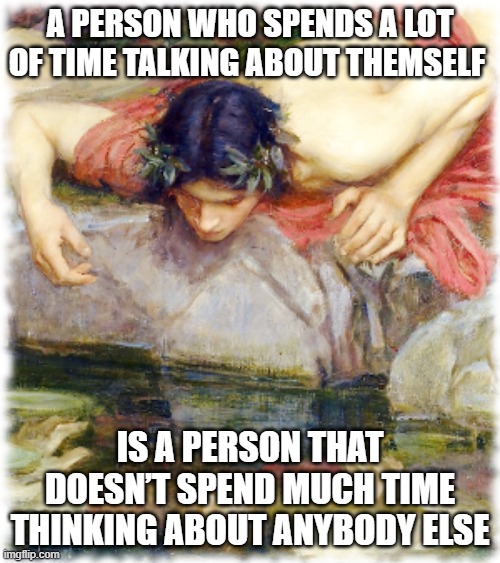
• We are fascinated and disappointed, but we don't idealize or devalue.
• We take credit not only for our mistakes and mistakes, but also for our achievements, successes, qualities of our personality and experience of various shades. nine0003
• In relationships, we build and maintain our boundaries without rejection, maintain our self-respect without demeaning, love without idealizing.
• We do not turn away from the existing, objectionable world, we create our own world by creating.
how to recognize and what to do
Not everyone knows that narcissistic personality disorder is not the same as narcissistic personality disorder or high self-esteem. You should know well who a narcissist is and why he is dangerous. nine0003
Website editor
Tags:
Love and relationships
Relationship psychology
Mental disorders
Personality disorders
Getty images
If a guy posts too many selfies on his social media or constantly talks about himself on a first date, he's often called a narcissist. But you should not do this, because narcissistic personality disorder is a mental illness. nine0003
But you should not do this, because narcissistic personality disorder is a mental illness. nine0003
Signs of a narcissist
So don't confuse self-admiration with narcissistic personality disorder (NPD). The symptoms of the latter are as follows:
- overestimated sense of self-importance;
- excessive need for attention and admiration;
- inability to empathize;
- common relationship problems.
According to licensed psychotherapist Rebecca Wyler, NPD boils down to selfishness - the desire to get everything at the expense of others, as well as the inability to consider the feelings of other people. But remember, narcissistic personality disorder is not black and white. “Narcissism has its own spectrum,” says psychotherapist and author of The Self-Aware Parent, Fran Walvis. nine0003
9 official criteria for narcissistic personality disorder
The latest edition of the Diagnostic and Statistical Manual of Mental Disorders, the US nomenclature for mental disorders, lists nine criteria for NPD, but five of them are sufficient for clinical recognition of narcissism.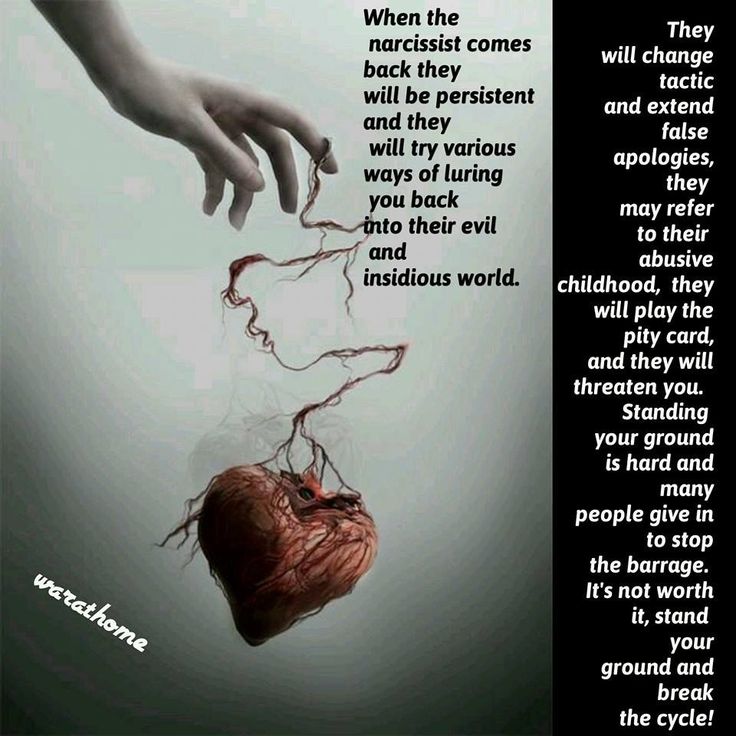 This list includes:
This list includes:
- a grandiose sense of self-importance;
- preoccupation with fantasies of unlimited success, power, brilliance, beauty, or ideal love; nine0128
- a person's conviction that he is special and unique, the desire to deal only with high-ranking people and elite organizations and institutions;
- need for excessive admiration;
- feeling of being chosen;
- the tendency to exploit others in relationships, in other words, to use other people to achieve one's own goals;
- lack of empathy;
- a person's envy of others or the belief that everyone envy him; nine0128
- arrogant and haughty behavior.
But even knowing the official criteria does not always allow one to identify a narcissist. The hardest thing to notice NPD in a person with whom you are in a romantic relationship. On a date with someone we like, rarely do any of us think: “Wait a minute, is this guy suffering from narcissism?”
But at the same time, we all dream of a healthy and long-term relationship that will make both us and our partner happy.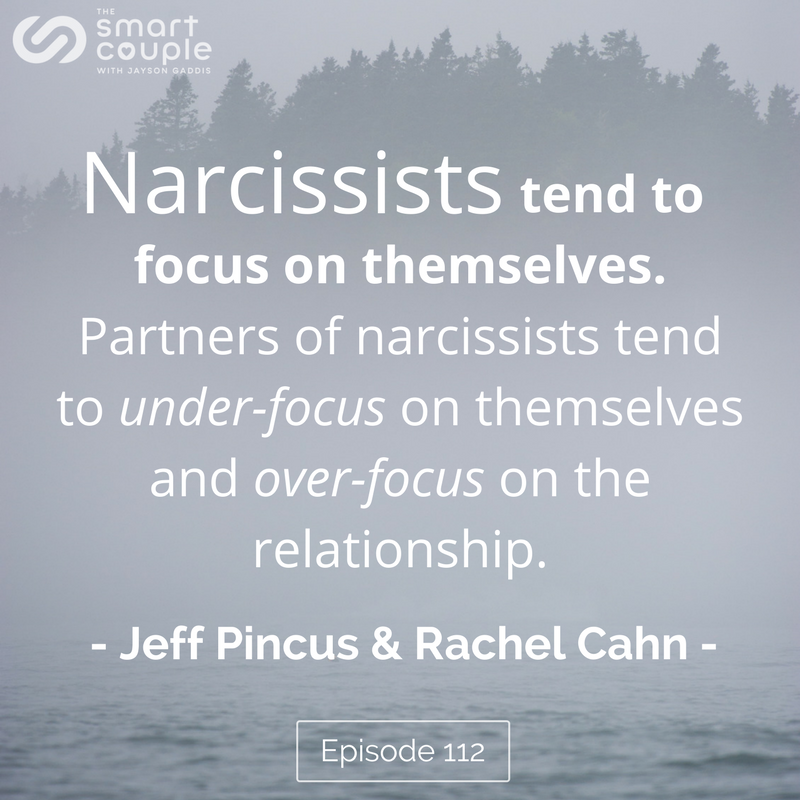 So read about how a male narcissist behaves when he is about to have an affair - this information will come in handy. Only a qualified specialist can make a diagnosis, but there are red flags that you should pay attention to. nine0003
So read about how a male narcissist behaves when he is about to have an affair - this information will come in handy. Only a qualified specialist can make a diagnosis, but there are red flags that you should pay attention to. nine0003
Relationship with a narcissist: how people with NPD behave
If you see that any of the above are familiar to you, be careful!
1. Narcissus is charming... But only at first
Everything starts like in a fairy tale. He constantly texts you, in the first month he confesses his love, promises to buy a tram, makes joint plans, showers compliments, says that he has finally found his soul mate, and your meeting is fate. Experts call all this "love bombing". nine0003
“Narcissists believe that they are worthy of relationships with special people and only such women can appreciate them,” says psychotherapist Nedra Glover Tawwab.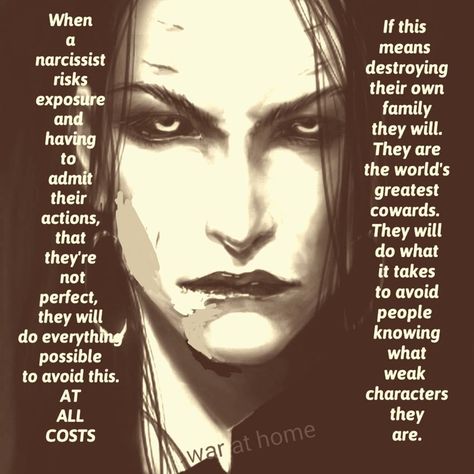 “But as soon as you do something that disappoints them, they may turn their backs on you.” And, most likely, you won't even know what you did wrong.
“But as soon as you do something that disappoints them, they may turn their backs on you.” And, most likely, you won't even know what you did wrong.
Wyler advises: if the guy is too persistent at first, be on your guard. Of course, each of us is pleased to feel unique and unique. But communication and mutual understanding between people are not born in a few days - they must be nurtured and developed. “If it seems like a man doesn’t know you enough to truly love you, he probably does,” Wyler says. nine0003
2. The narcissist talks at length about how wonderful he is
“Narcissists love to talk about their own great successes and accomplishments,” says psychotherapist Jaclyn Krol. “They do it because they feel better and smarter than everyone else, and also because it makes them look more confident.” Clinical psychologist Dr. Angela Grace adds that narcissists often exaggerate their achievements and embellish their talents in order to gain admiration and adoration from others. nine0003
nine0003
Narcissists tend to be too busy with themselves to listen to other people. This, according to Grace, will become a red flag: firstly, the guy with NPD will constantly talk about himself, and secondly, he will never discuss your interests and preferences. Pay attention: what happens if you try to tell something about your life? Is he asking questions, trying to find out more? Or just waiting for the moment to be the center of attention again?
3. The narcissist lacks empathy
An inability to understand the other person's feelings is one of the hallmarks of narcissists, Walvis says. Pay attention to how your boyfriend reacts when you tell that you had a bad day at work or you had a fight with your parents. Does he empathize or frankly bored when you say that you are angry or sad? According to Walvis, a lack of empathy is the most common reason why relationships with narcissists end up falling apart, whether it's romantic love or friendship.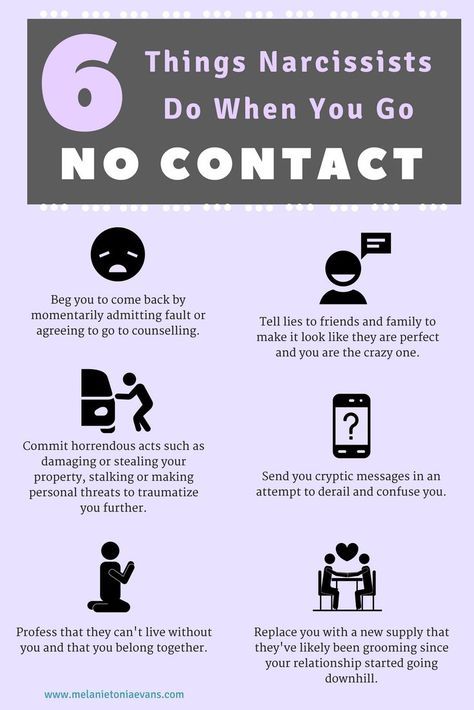 nine0003
nine0003
4. Narcissists have no real friends
If you look closely at a narcissist, you will notice that around him there are only casual acquaintances, friends with whom he chats, and enemies. People with NPD tend to have no loved ones, especially those with whom they have known and maintained relationships for many years. Therefore, a narcissist may be offended if you want to communicate with your friends. It is likely that he will even try to make you feel guilty: for example, he will begin to say that you devote little time to him. nine0003
Ask yourself the following questions:
- How does your partner feel about someone they don't want anything from?
- Does he have old friends?
- Does he have a sworn enemy? If not, did he say that he would like to have one?
5. The narcissist feeds on your compliments
It may seem that narcissists are very self-confident.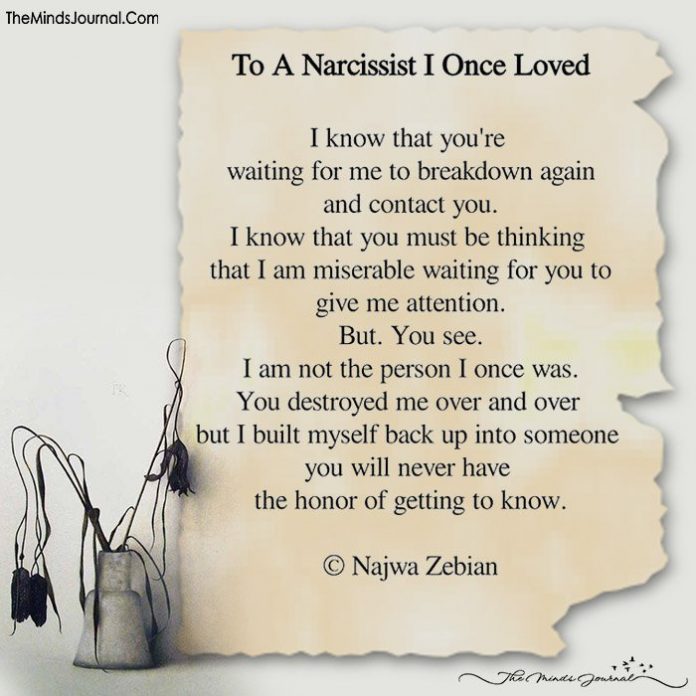 But according to Tawwab, most people with NPD actually lack self-respect. “They need a lot of praise, and if you don’t give it, they will seek it. That's what you're for: to tell them how wonderful they are,” she says. nine0003
But according to Tawwab, most people with NPD actually lack self-respect. “They need a lot of praise, and if you don’t give it, they will seek it. That's what you're for: to tell them how wonderful they are,” she says. nine0003
“Narcissists use other people—usually those who are highly empathetic—to nurture self-esteem. Because of their low self-esteem, narcissists' egos are easily hurt, and therefore their need for compliments is great,” adds Marriage and Family Psychotherapist Shirin Peykar.
Pay attention: self-confident people do not need constant confirmation of their importance from others. “A person with NPD needs to be praised, but he himself flourishes by humiliating others,” says Peykar. As Weilar aptly puts it, narcissists punish everyone around them for their lack of self-confidence. nine0003
6. The narcissist constantly picks on you
At first it seems like a mild tease, but over time it becomes a constant background, and hairpins turn from good-natured to angry and rude.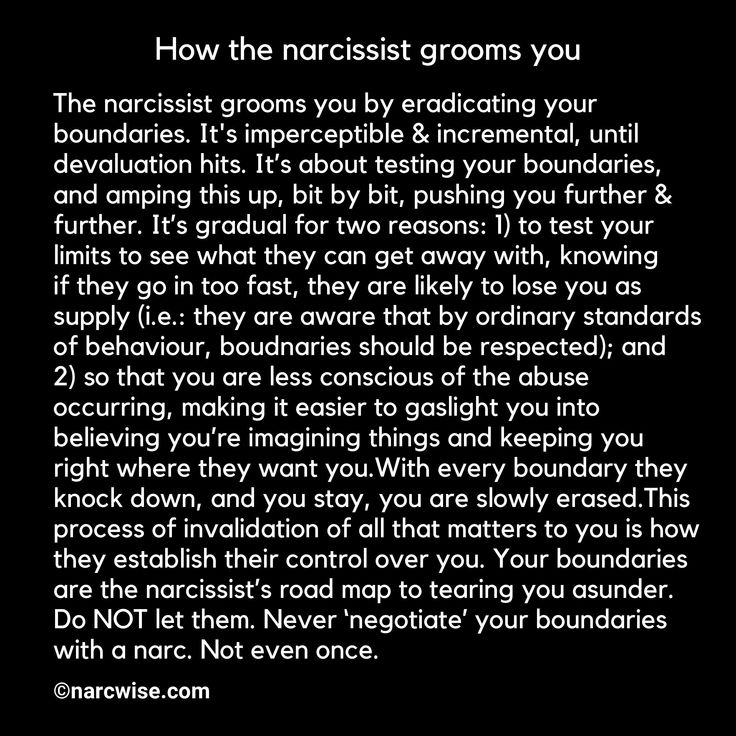 Suddenly, everything you do is subject to criticism, whether it's about choosing a profession or brushing your teeth.
Suddenly, everything you do is subject to criticism, whether it's about choosing a profession or brushing your teeth.
“The goal of narcissists is to lower other people's self-esteem in order to raise their own, because it makes them feel powerful,” Peykar says. “They love reaction: it shows them that they have the power to influence the emotional state of another person.” nine0003
Pay attention: if your partner throws barbs when you have achieved something, then it's time to run. If a man says that your achievements are accidental or obtained through advantages, then there is a chance that you are dealing with a narcissist. “He wants you to remember that you are no better than him,” Tawwab explains.
7. The Narcissist Gaslights
Gaslighting is a form of manipulation and emotional abuse that is a hallmark of narcissism. “Narcissists use gaslighting to make others doubt themselves.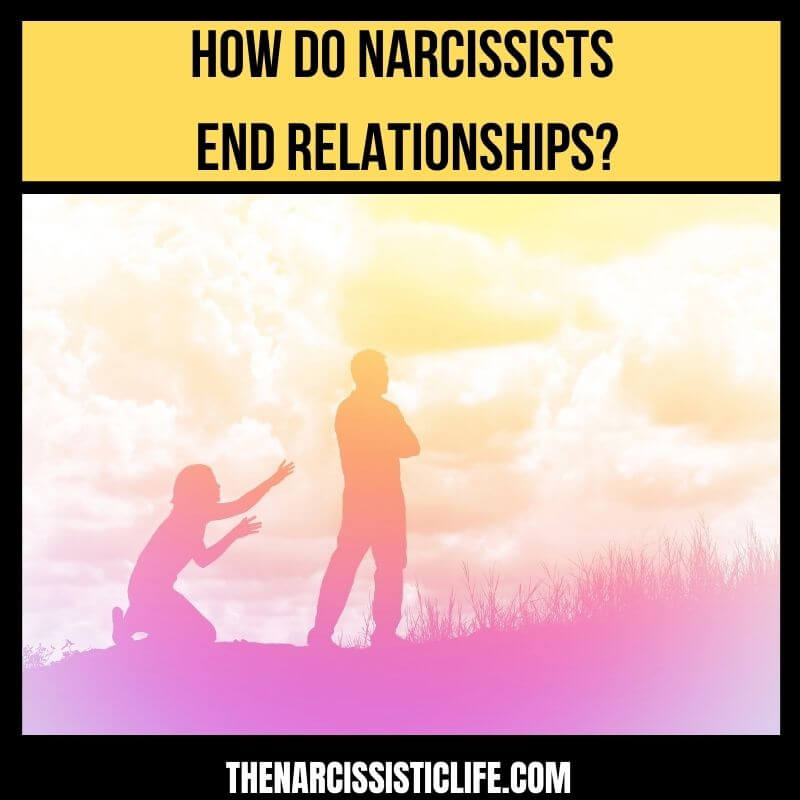 For them, this is a way to achieve superiority over others, ”explains Peykar. nine0003
For them, this is a way to achieve superiority over others, ”explains Peykar. nine0003
You can read more about gaslighting here, but here are the signs that indicate that you are experiencing it.
Signs that you are a victim of a narcissist and gaslighted:
- you no longer feel like the person you used to be;
- you have become more anxious and less confident;
- you often wonder if you are too sensitive;
- you feel that everything you do is wrong;
- when something goes wrong, you always think it's your fault;
- you often apologize;
- you feel something is wrong, but you don't know what;
- you constantly doubt that your answer to your partner is correct;
- you make excuses for your partner's behavior.
8. The narcissist thinks he is always right and never apologizes
Arguing with narcissists is impossible. “It will not be possible to reach a compromise with them. People with NPD don't see disagreements as disagreements. They just think they are teaching you some truth,” says Tavwab. Peykar thinks you might be dating a narcissist if you think your partner is:
“It will not be possible to reach a compromise with them. People with NPD don't see disagreements as disagreements. They just think they are teaching you some truth,” says Tavwab. Peykar thinks you might be dating a narcissist if you think your partner is:
- can't hear you;
- does not understand you;
- takes no part of the responsibility for the problem;
- never tries to compromise.
Weilar advises avoiding negotiations and arguments with narcissists. “People who suffer from NPD hate the lack of control and struggle. The less you resist, the less power you can give them over you, the better,” she says.
Since narcissists are sure that they are always right, they never "sink" to the point of apologizing - even in situations where they are clearly at fault. For example, your partner does not feel the need to say "sorry" if he was late for dinner and did not even call to warn about it, or canceled your joint plans at the last moment.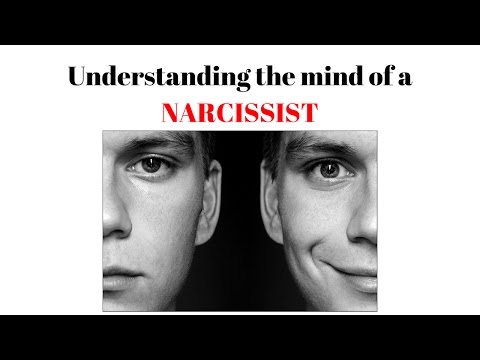 Remember: normal people are able to understand that they did something wrong and apologize for it. nine0003
Remember: normal people are able to understand that they did something wrong and apologize for it. nine0003
9. The narcissist does not want to make commitments
The narcissist expects you to treat him as his partner, and at the same time refuses you the same. You may notice how he flirts with someone, but if you talk about it as a sign of disrespect, you will be accused: “You made a storm in a glass of water, you are completely crazy!” But think about this: you deserve the same devotion that you give yourself.
10. The narcissist panics when you try to break up with him
Once you back off, the narcissist will do his best to get you back. “At first they may bombard you with love. They will say all the right things to convince you that they have changed,” warns Peykar. But very little time will pass, and it will become clear: you are still dealing with the same person.
11. Realizing that everything is over, the narcissist loses his temper
The narcissist will do everything possible to hurt you for leaving him. “Their ego is so badly hurt that they feel only rage and hatred. They believe that only other people are to blame for everything, including the breakup,” says Peykar. nine0003
What will be the result? The narcissist may say bad things to you, immediately start dating someone else to make you jealous, or even try to "steal" friends. The reason, Tawwab says, is that a good reputation means everything to them, and they won't let anyone or anything ruin it.
Okay, I'm dating a narcissist. What to do?
So, you realized that you are in a relationship with a person who has NPD. He constantly criticizes you, humiliates you and emotionally exhausts you. Experts recommend the obvious way out - to move away from it. nine0003
nine0003
Here's how to prepare for breaking up with a narcissist:
- Constantly remind yourself that you deserve better.
- Strengthen relationships with friends who support you.
- Gather around you those close to you who will help you critically assess reality.
- Convince your partner to go to therapy.
- See a psychotherapist yourself.
“You cannot change a person with narcissistic personality disorder or make them happy with your love. Don't change for him - that won't help either. He will never empathize with you, and you will always feel empty after interacting with them, says Grace. “Basically, you will never be enough for them, because they will never be enough for themselves.” nine0003
Grace thinks the best thing to do is end the relationship. At the same time, it is not worth explaining anything, much less giving a second, third or fourth chance.
